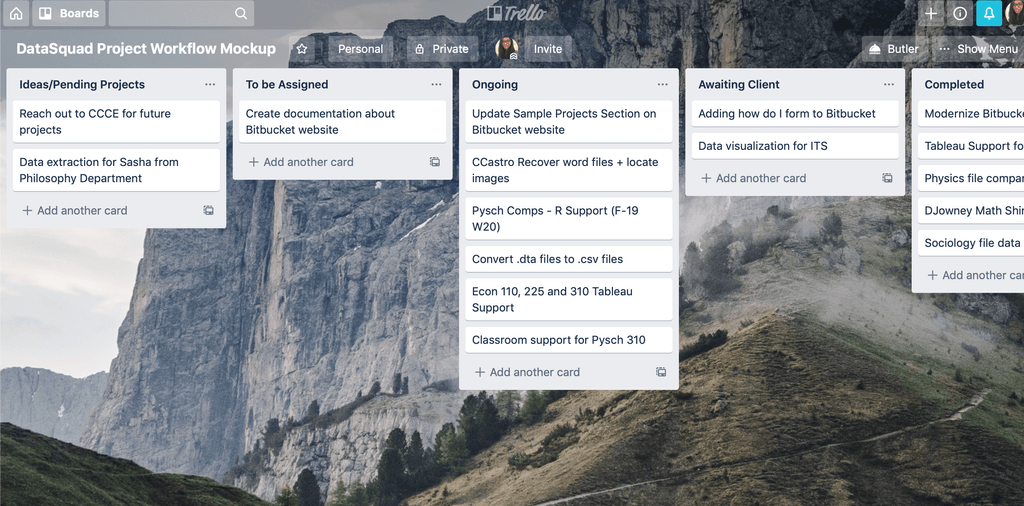The DataSquad is a group of student employees (a subgroup of Academic Technology – which is a subgroup Information Technology Services) that provide data-related services here at Carleton College. To manage this process, I have been serving as the Project Management Intern; this is my second year. Last year, we made the transition from Jira to Trello, which has drastically improved the project management and task completion experience for us.
Here’s why:
Trello is flexible. Jira is intended for the management of large software projects with many moving parts. Our projects – whether wrangling gnarly data into something meaningful or providing Tableau and R Support – are usually the size of a task on that scale. The nature of our data-related projects did not easily fit in Jira’s mold. Meanwhile, Trello’s simple structure provided us with a flexible platform for projects of all shapes and sizes. Most importantly, it accommodated those projects that were small and quick to complete. Jira’s “concepts” were a source of confusion as the various “issue types” of “story, epic, task, and sub-task” did not directly apply to the nature of our small “projects.” Trello’s simplified vocabulary alleviated that issue.
Trello’s User Interface is intuitive. For all of Jira’s features, its UI was not the easiest to navigate. Learning to work with the interface was time-consuming. We were spending valuable time discussing how Jira works in our weekly meetings rather than discussing project updates. That was a serious cause of concern as time is an expensive commodity at Carleton. We avoided those distractions with Trello as its Kanban Board is incredibly easy to use. Students could fully navigate the platform within minutes.

While considering the benefits of our transition into Trello, it is important to mention the downside of using the platform. Unless a member of the DataSquad updates their progress on Trello individually, it is hard to track any progress made. Since updating progress on Trello is outside of the member’s workflow, it is not unusual for them to forget to update their card, delaying any feedback or help they could receive. This results in my supervisor and I checking on our members’ cards every three or four days.
All in all, Trello made sense for the DataSquad because it allowed us to create a system unique to us rather than awkwardly conforming our system to the design of an exacting software development tracking tool. While Jira has its numerous benefits, it just did not make sense for our group. The DataSquad is still learning and developing its best practices. While our current system with Trello is not complex, it works and has seriously increased our efficiency.